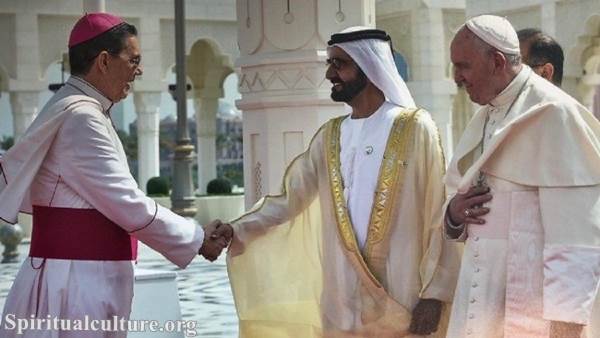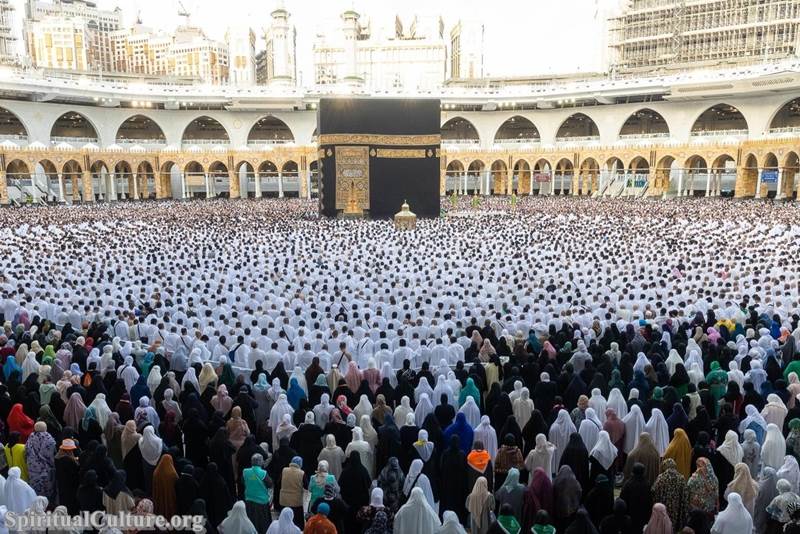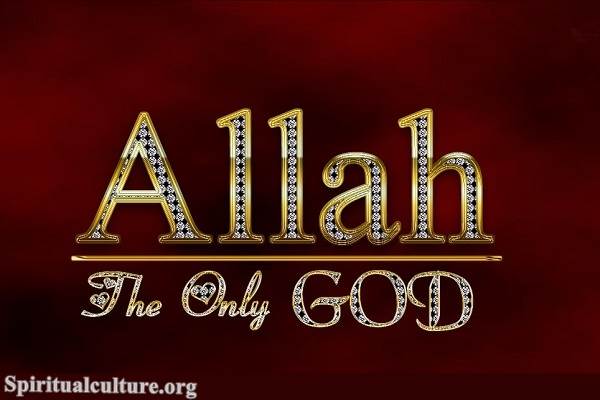Death is not the end, but a beginning — a doorway through which the soul steps into the unseen. In Islam, the afterlife is a profound and central theme, shaping not only theological understanding but also everyday ethics, choices, and hopes. Muslims across the world live with a vivid awareness of a life beyond this life — a reality that promises justice, mercy, and ultimate accountability.
As “Spiritual Culture,” we invite you to walk with us through the Islamic vision of the hereafter: a tapestry woven from Qur’anic verses, prophetic traditions, and centuries of spiritual reflection. What happens when the soul leaves the body? What is Barzakh? What are the signs of the Hour? What awaits the righteous — and those who turned away?
This article explores the beliefs that offer comfort to the grieving, warning to the heedless, and guidance to the seeking soul — for in understanding the Islamic view of the afterlife, we come closer to understanding the moral heartbeat of Islam itself.
The Soul’s Journey Begins: Death in Islam
The Moment of Death
In Islamic belief, the moment of death is both solemn and sacred. The Qur’an speaks of the angel of death (Malak al-Mawt) who is assigned to each soul:
“Say, the angel of death will take you who has been entrusted with you. Then to your Lord you will be returned.”
(Surah As-Sajda 32:11)
For the believer, this is a moment of peace — the soul is gently drawn out, met with greetings of mercy and light. For the one who denied or rebelled, it is a moment of terror, with the soul being pulled out forcefully, as described in many hadiths.
Washing, Burial, and the Funeral Prayer
Islamic burial customs — the washing of the body (ghusl), the white shroud (kafan), and the communal prayer (Salat al-Janazah) — reflect the dignity of the departing soul. These rituals are not merely cultural; they embody the belief in resurrection and the return to God.
Life Between Worlds: The Realm of Barzakh
What Is Barzakh?
After death and before the final Day of Judgment, the soul enters Barzakh — an intermediate realm. The Qur’an refers to this state:
“And behind them is a barrier (barzakh) until the Day they are resurrected.”
(Surah Al-Mu’minun 23:100)
Barzakh is often compared to a waiting room of the soul — but it is not idle. According to many hadiths, souls experience either a preview of Paradise or torment, depending on their earthly deeds. It’s a space of awareness, memory, and anticipation.
The Grave as a Garden or Pit
The Prophet Muhammad (peace be upon him) said:
“The grave is either one of the gardens of Paradise or one of the pits of Hell.”
(Sunan al-Tirmidhi)
In this way, the grave is not silent; it either comforts the believer or constricts the wrongdoer. This teaching encourages Muslims to live with humility and consciousness of God.
The Day of Judgment: Yawm al-Qiyamah
Signs of the Hour
Before resurrection, Islamic eschatology describes major and minor Signs of the Hour — events that precede the end of the world. These include moral decay, social upheaval, the return of Jesus (Isa), and the appearance of figures like the Dajjal (antichrist) and the Mahdi.
The Prophet said:
“The Hour will not come until knowledge is taken away, earthquakes increase, time passes quickly…”
(Sahih Bukhari)
These signs serve as both a warning and a reminder of the impermanence of the world.
The Resurrection and Gathering
When the trumpet is blown, all souls will rise from their graves. This moment is described vividly in the Qur’an:
“And the trumpet will be blown, and at once from the graves to their Lord they will hasten.”
(Surah Yasin 36:51)
All of humanity — from prophets to peasants — will be gathered on a vast plain. The sun will draw near, the books of deeds will be opened, and justice will be established.
The Scale and the Record
Each person’s actions will be weighed on the Mizān (scale), and every soul will be handed their Book of Deeds:
“And the record [of deeds] will be placed, and you will see the criminals fearful of what is [within] it…”
(Surah Al-Kahf 18:49)
Those who receive their book in the right hand will rejoice; those who receive it in the left will despair. It is a moment of truth — one that affirms Islam’s deep sense of moral accountability.
Paradise (Jannah): The Eternal Reward
Descriptions of Paradise
Paradise in the Qur’an is described with extraordinary beauty: gardens beneath which rivers flow, everlasting youth, shade, pure companionship, and nearness to God.
“Indeed, the righteous will be in pleasure, on adorned couches, observing. You will recognize in their faces the radiance of bliss.”
(Surah Al-Mutaffifin 83:22–24)
The imagery of Jannah is meant not only to appeal to the senses but to awaken the soul to the promise of what lies beyond striving.
Levels of Paradise
Paradise has multiple levels, with the highest being Al-Firdaus — closest to God’s throne. The Prophet said:
“When you ask Allah for Paradise, ask Him for Al-Firdaus…”
(Sahih Bukhari)
The rewards in Jannah are based on faith, sincerity, and righteous deeds — not status, wealth, or heritage.
The Greatest Joy
While Paradise is filled with unimaginable pleasures, the greatest reward, according to Islamic tradition, is the beatific vision — to see God.
“Some faces, that Day, will be radiant, looking at their Lord.”
(Surah Al-Qiyamah 75:22–23)
This is the culmination of longing — the soul’s reunion with the Divine.
Hell (Jahannam): The Place of Divine Justice
Why Does Hell Exist?
Islam teaches that Hell is not arbitrary punishment but the result of conscious rejection of truth, cruelty, and corruption. It is a manifestation of God’s justice.
“And whoever turns away from My remembrance — indeed, he will have a depressed life, and We will gather him on the Day of Resurrection blind.”
(Surah Taha 20:124)
God is described as both Most Merciful (Ar-Rahman) and Severe in Punishment (Shadeed al-‘Iqab) — a balance that reflects the moral seriousness of life.
The Nature of Hell
Hell is described with fire, boiling water, chains, and regret. Yet the Qur’an also says:
“They will not remain therein forever…” (for some sinners)
(Surah An-Naba 78:23)
Many scholars interpret this to mean that some souls may be purified and eventually released, while others remain eternally — especially those who commit shirk (associating partners with God).
Mercy and Hope: The Door of Forgiveness
God’s Mercy Surpasses All
Despite the warnings, God’s mercy is central to Islamic theology. The Qur’an opens every chapter (except one) with:
“In the name of God, the Most Merciful, the Most Compassionate.”
And the Prophet said:
“God’s mercy prevails over His wrath.”
(Sahih Muslim)
No matter how grave the sin, sincere repentance can wipe it away. Islam emphasizes that the door of forgiveness remains open until the soul leaves the body.
Living in Light of the Afterlife
A Moral Compass for Life
Belief in the afterlife transforms how Muslims approach life: honesty in business, patience in hardship, compassion in relationships — all are shaped by the awareness that nothing is unseen to God.
This belief anchors life in meaning. Suffering is not wasted; good deeds are never lost. The poor, the oppressed, the forgotten — all will be accounted for in the next life.
A Culture of Remembrance
Islamic cultures nurture remembrance of death (dhikr al-mawt) not as morbid fixation, but as clarity. It helps keep priorities aligned and ego in check. As the Prophet said:
“Remember often the destroyer of pleasures — death.”
(Sunan Ibn Majah)
Reflect and Reimagine
The Islamic belief in the afterlife is not about fear — it is about awakening. It is about living this life with eternal consciousness, where each action, each word, each silent prayer is part of a greater journey toward meeting the Divine.
In Jannah, the believer will say:
“Praise be to Allah, who has removed from us all sorrow…”
(Surah Fatir 35:34)
To reflect on the afterlife is to reflect on purpose, love, justice, and return. For Muslims, it is not the end but the homecoming.
May we each live with that eternal awareness — with humility, with compassion, and with hope.
Let “Spiritual Culture” walk with you in these sacred questions. For in pondering what lies beyond death, we begin to live more truly now.





